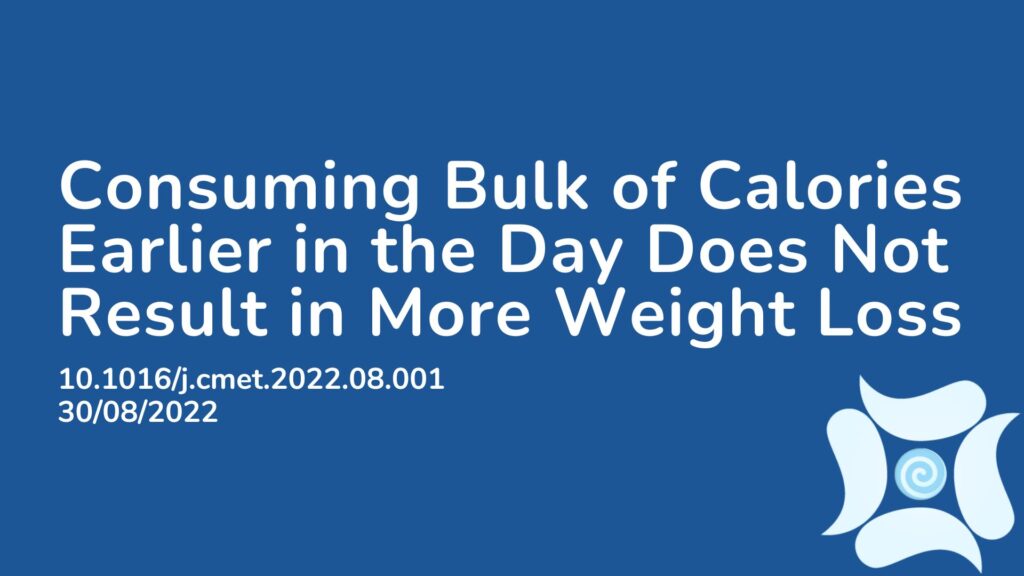Summary:
It is often said that eating a big breakfast is the best way to lose weight, or eating late at night will cause weight gain. This study assesses whether the time of day that you eat actually has an influence on metabolism and appetite. The results have shown that regardless of whether someone eats their largest meal in the morning, or later in the day, it does not affect weight as its own isolated outcome measure and has no impact on the way the body metabolizes calories. People who eat their largest meal in the morning did report feeling less hungry later in the day, however time of the day consumption did not impact weight outcomes.
Abstract:
Morning loaded calorie intake in humans has been advocated as a dietary strategy to improve weight loss. This is also supported by animal studies suggesting time of eating can prevent weight gain. However, the underlying mechanisms through which timing of eating could promote weight loss in humans are unclear. In a randomized crossover trial (NCT03305237), 30 subjects with obesity/overweight underwent two 4-week calorie-restricted but isoenergetic weight loss diets, with morning loaded or evening loaded calories (45%:35%:20% versus 20%:35%:45% calories at breakfast, lunch, and dinner, respectively). We demonstrate no differences in total daily energy expenditure or resting metabolic rate related to the timing of calorie distribution, and no difference in weight loss. Participants consuming the morning loaded diet reported significantly lower hunger. Thus, morning loaded intake (big breakfast) may assist with compliance to weight loss regime through a greater suppression of appetite.
Article Publication Date: 30/08/2022
DOI: 10.1016/j.cmet.2022.08.001




